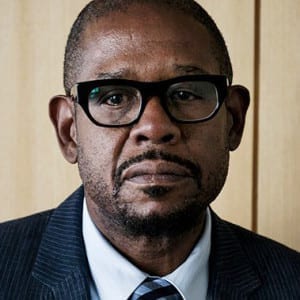Over the past decade, we’ve seen many examples of how technology has changed the ways we respond to crises and build broad-based, popular movements.
After the devastating 2010 earthquake in Haiti, individuals on the ground used the crowdsourcing platform Ushahidi to help direct search-and-rescue teams to the locations where they were needed most. In 2011, Arab Spring protesters organized on Twitter and other social-media platforms to create political transformations throughout the Middle East.
But despite the potential that information and communications technologies (ICTs) hold for mitigating disasters, promoting democracy, and creating peace, the very countries that could benefit the most from these tools are the ones where they are the most under-utilized. The International Communications Union (ITU) compiles statistics on the prevalence of ICTs across countries. In the developed world, for example, over 80 percent of individuals use the Internet; in the developing world, less than 35 percent do. What’s more, in the least-developed countries—those nations that, according to the U.N. display very low indicators of socioeconomic development—less than 10 percent of people have access to the Internet.
Increasing ICTs’ penetration into the developing world, particularly into the least-developed countries, will be an important piece of the global-development and peacebuilding agendas in the coming decade. In fact, one of the targets of the Sustainable Development Goals adopted last year is to provide universal and affordable access to the Internet in least-developed countries by 2020.
Much of Whitaker Peace & Development Iinitiative’s work empowering youths in regions of the world impacted by violence, poverty, and conflict relies on leveraging the potential of ICTs. Fundamentally, our philosophy is that young women and men are able to confront the challenges facing their communities most effectively when they do so together. Online social networks and smart phones allow our youth to reach out to each other, to form friendships and connections, and to brainstorm their responses to crises in real time.
Thanks to the generosity and dedication of the team at Ericsson, many of the youth we work with around the world are given smartphones and tablets and receive comprehensive training on how to utilize these tools to spread peace.
Our youth peacemakers are using these technologies to make a real and tangible difference in their communities. A few months after we launched our program in South Sudan, the nation was plunged into civil war. The fighting was most concentrated in Jonglei State, right where our program was centered. I was heartbroken to see how the violence impacted the young people we worked with, but I was also incredibly proud of how they responded to the situation. After the fighting started, they reached out to one another, often across ethnic lines. They called each other with warnings when they knew there was danger on the road ahead. They essentially formed an early-warning system, spreading information through their network and sharing that knowledge with their friends and neighbors. They acted as a single entity, dedicated to keeping people safe and advocating for non-violence.
In the short-term, ICTs can be a crucial component in responding to crises and managing disasters, but they can play an equally important role in long-term peacebuilding as well.
Nelson Mandela once said that “education is the most powerful weapon you can use to change the world.” ICTs are already revolutionizing the way individuals consume education. Here in the United States, for example, distance learning and iCourses have become common. Increasing the prevalence of ICTs in the developing world would be a great equalizer in allowing people in these countries to access the same knowledge and educational resources that those in the developed world take for granted. In the near future, a boy in rural South Sudan could learn about engineering from a professor at MIT. A young woman in Mexico could take a management course at the London School of Economics. A farmer in Uganda could bring his questions to an agricultural expert in South Africa.
As technological innovations expand the frontiers of what is possible, we must continue searching for ways to put this new potential in the service of the global peacebuilding agenda. WPDI and its partners are continuing to work at the forefront of these efforts with youths in conflict-impacted areas around the world.
Editors note: May 17 was World Telecommunication and Information Society Day. The theme was “ICT entrepreneurship for social impact.” The piece above is an excerpt from Forest Whitaker’s October 2015 piece on technology and development.




































